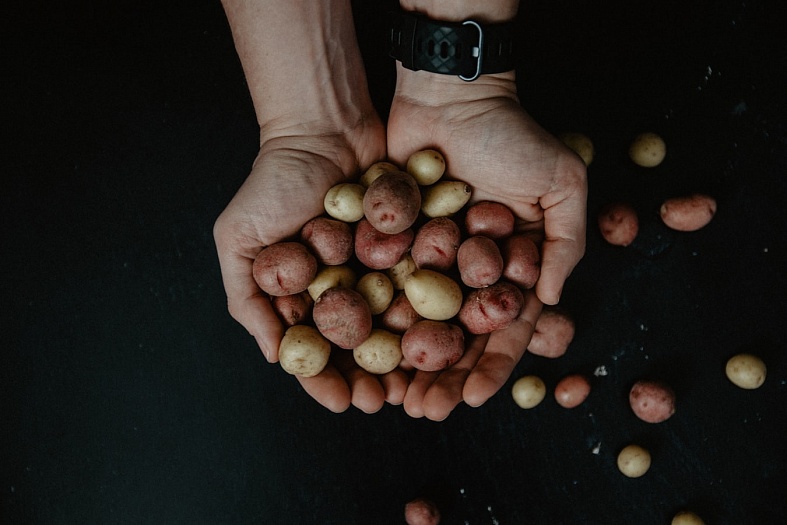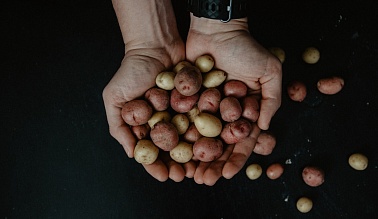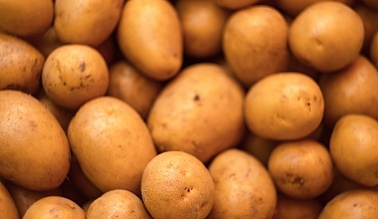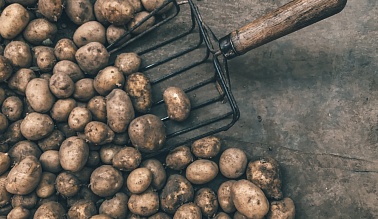How will the ban on chlorprofam affect the potato market?
24.03.2020 | Potatoes
CIPC Stewardship Group (PICSG), the European Association for Food Safety, has published a report on the inadmissibility of the use of chlorprofam as a protection against potato germination (CIPC) because of its negative impact on crop and seed quality, even in small quantities. Therefore, it was decided in the EU to ban this substance.
For over 60 years, chlorprofam has been an affordable and effective potato germination inhibitor and has been widely used in potato storage facilities. Until 2020, chlorprofam was used in about 90 percent of the 3.5 million tonnes of potatoes stored in the UK.
The maximum period of chlorprofam "utilization" was nine months and was set by the EU, with EU member states able to set their own date during this period.
On 8 January, the authorization for use of the growth regulator was withdrawn by the European Commission, so that the date of last possible chlorprofam use will be 8 October, during the early stages of loading the potatoes for storage, as already confirmed in the UK and the Netherlands.
Experts in the potato sector believe that this restriction will have negative consequences, especially on exports. Jan Gothschall, a specialist in the Netherlands potato organization, estimates that approximately 200 000 000 tonnes of potatoes are exported from the Netherlands to third world countries. Some 125 000 000 tonnes are destined for Africa and the ban on chlorprofam will have irreversible effects on these destinations because consumers do not want the potatoes that come to their table to have escapes.
However, it is difficult to level out their emergence, because sorting, packing and transport to distant countries can take from two weeks to one month, and storing potatoes for a long period in an uncontrolled environment causes germination.
Wageningen University and Research in the Netherlands is researching twenty different combinations of germination suppression, and potato storage facility owners are concerned about finding ways to clean their warehouses, as there is currently no sanitary protocol in place to rid storage facilities of CIPS traces. Chlorprofam can accumulate on surfaces and conventional cleaning methods are not sufficient to remove its residues.
Alternative methods
There are 4 inhibitors that can become an alternative to chloroprofam:
- Ethylene
- Peppermint
- 1.4-dimethylnaphthalene
- Malein hydrazide
The first three inhibitors are sprayed on to the potatoes during storage, while hydrazide is used in the potato growing phase of the field. These inhibitors will not be difficult to use in new buildings, the old ones will be more difficult because they often lack effective ventilation systems and are poorly insulated. Owners of outdated buildings can use maleic hydrazide during the growing season, which will reduce the risk of germination, but to ensure that the potatoes are stored for a long time, care must be taken to ensure proper storage, tightness and installation of a modern microclimate system.
Analysts predict that CIPC will cause prices to rise as the new germination protection schemes will be more expensive without CIPS. The additional investment will depend on the choice of crop protection measures, potato varieties and storage conditions.
Adrian Cunnington, Head of Crop Storage Research at AHDB, believes that many growers are aware of these changes and will know that the 2019 crop is the last one that can be processed with CIPC.
"We still receive some worrying reports that some producers are not fully aware of the changes and consequences of CIPC cancellation. Any farmer who applies CIPC in the autumn of 2020 risks not being able to sell that crop".
Information on alternative inhibitors is available on the AHDB website. To help potato owners prepare, the AHDB offers free visits to the storage network through the new storage network. The visits are designed to help businesses prepare for life after CIPC.
The storage network is supplied by Sutton Bridge Crop Storage Research and a team of independent consultants trained by SBCSR.




